Starting medical school can be both exciting and daunting – there is so much to learn in so little time! The amount of learning expected in medical school is a little like having someone turn on a fire hydrant and asking you to drink every single drop of water. It’s only water, so it is usually pretty easy to drink, but there is so much of it that no one can get every last drop. If you need help, please ask for it. No one gets through medical school alone and we have many resources available for students.
FOUNDATIONS PHASE
Begin your exploration of family medicine as possible career. Attend Family Medicine Interest Group events, find mentors and network through regional and national involvement, and familiarize yourself with opportunities in Family Medicine for research, leadership, and scholarships. And don’t forget to sign up for our Family Medicine listserv to keep up on what’s happening and to learn other opportunities that may be of interest to you.
In order to be as successful as possible it is important to develop good study skills. This means different things for different people, as everyone learns differently. Figure out how you learn best – this may take some trial and error. Take advantage of your learning style to master material efficiently. If study groups work, then use them. If listening to lectures again helps, then do that. If something is not working, stop doing it. This may seem obvious, but many students get trapped in study groups or study patterns that aren’t helping them learn the material.
Once you figured out your learning style and are in a good routine, keep a few other things in mind. Make sure you review tests from previous years if they are available – material is often repeated.
Cultivate a school-life balance. You’ll often be more efficient at learning if you take time to recharge your battery though your own hobbies or with friends and family than if you just keep plowing through. Also consider getting involved in some of the many extra-curricular activities at UW.
Preparing for Step 1 See the UW School of Medicine blog on study strategies for USMLE Step1. In FM, it is very important to pass both Step1 and Step 2 CK and CS on your first attempt. Having a better score can strengthen your application, but it is not necessary to obsessively stress out about your exact score. There are other ways to strengthen your application that are valuable. However, failing a Step can be a red flag on your application. In this case, please make an appointment with a FM departmental career advisor as soon as you know you want to apply in FM.
PATIENT CARE PHASE
Just when you have the pre-clinical years figured out you transition to clinical rotations. The good news – you get to see patients. The bad news – there is still a lot to learn. Here are some tips on how to be successful on your Family Medicine clerkship. These principles will apply in most of your clinical settings.
EXPLORE AND FOCUS PHASE
Although 4th year seems dominated by the all-important residency application process, it is important to take the initiative in directing your own education. There are different philosophies about how to choose 4th year electives; you can focus on electives that will further prepare you for what you need to know as a resident (medical subspecialties to prepare you for inpatient duties, electives in psychiatry, pediatrics, dermatology, palliative care, for example) or you may choose to explore areas that will not usually be a direct part of family medicine residency training but will be specialties where you might refer your future patients (Hematology/oncology, specialized HIV care, for example).
Choosing your Advanced Patient Care (APC) Clerkships and Sub-Internships
You are required to take two APCs to graduate. One of them needs to be a Sub-I. A Sub-I in FM will allow you to participate on a family medicine team with an advanced degree of independence and responsibility compared to your FM clerkship. Many program directors in the WWAMI region viewed a FM sub-I as necessary to be a competitive applicant into their residency, but it is possible to do a Sub-I in another specialty and still match into FM. There are APCs that are not Sub-Is that will give you an opportunity to care for special populations or to be at many of the wonderful WRITE sites and some RUOP sites that provide diverse FM experiences.
Family Medicine Sub-Internships and Advanced Patient Care clerkships (APC)
Sub-I rotations take place at one of the WWAMI regional affiliated programs. Here are some tips on what to consider when selecting a Sub-I
